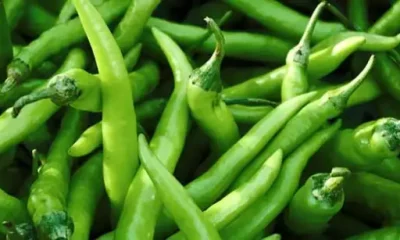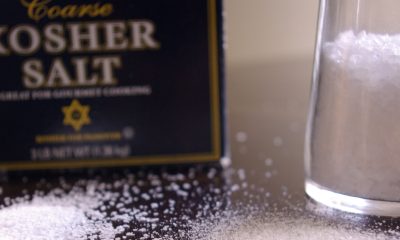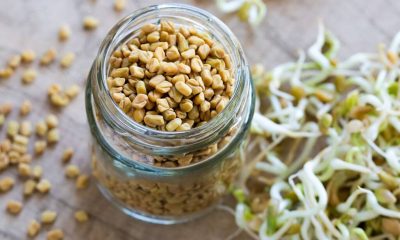Health
Contraindications and side effects of Trazodone
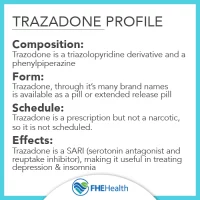
Discover the Contraindications and side effects of Trazodone.
Trazodone is used in a wide variety of disorders, although it is an antidepressant.
Being depression one of the most prevalent mental disorders worldwide and one of the major causes of disability, its treatment is a matter that the scientific community has taken into account for many years.
The suffering it generates requires sometimes immediate attention since it is one of the disorders with the highest risk of suicide and that generates the most pain both for the person and for those around him.
The treatment of depression is carried out from different areas, one of them being psychopharmacology.
One of the drugs used in the treatment of depression is trazodone, which we are going to talk about in this article.
Trazodone: what type of substance is it?
Trazodone is a psychotropic drug classified within antidepressants, substances that generate a neurochemical change at the brain level, causing alterations in the levels of certain neurotransmitters, specifically serotonin.
Among antidepressants, it is part and is the main representative of the group of serotonin-2A antagonists and reuptake inhibitors or SARIs, a type of atypical antidepressant.
This drug was designed in Italy in 1966 under the assumption that depression could be based on the existence of low thresholds regarding the perception of pain and suffering, being the product of the lack of integration of aversive experiences.
Trazodone has proven to be an efficient and effective drug in the treatment of depression, reducing passivity and inactivity, as well as the discomfort and suffering associated with said ailment, and facilitating an increase in mood.
However, in addition to this, it also has an anxiolytic and tranquilizing action.
This substance is considered a second-generation antidepressant, along with specific serotonin reuptake inhibitors (SSRIs), with which it shares part of its mechanism of action, and different dual antidepressants.
Trazodone is sometimes considered to be dual as it has two different effects, although they focus on the same neurotransmission system, compared to the rest, and in addition to an antidepressant effect, it also has calming effects.
How does it work? Mechanism of action of the drug
As we have indicated previously, trazodone is classified as SARI, having a somewhat special mechanism of action among the rest of antidepressants.
Trazodone acts at the serotonergic system level (like most antidepressants) in two specific ways.
In the first place, this substance produces a blockage of brain serotonin reuptake, in such a way that said neurotransmitter remains in the synaptic space for a longer time.
This supposes that it has an agonist effect on the synthesis and maintenance of serotonin at the brain level, it increases its levels (which are decreased during the depression and this is something that correlates with the decrease in the mood).
The aforementioned mechanism of action is the one used by SSRIs, which is why these and trazodone are related and sometimes the latter is included among the first.
However, trazodone has a second effect that differentiates it from other drugs, and that seems contrary to the previous mechanism of action.
And it is also that it acts as an antagonist of serotonin 5-HT2A receptors, preventing or hindering these receptors from being activated.
This second aspect is what makes trazodone have a slightly different profile and effects than other antidepressants.
Regarding its interaction with other neurotransmitter systems, it does not present great anticholinergic effects, something that has made this drug a better option than tricyclics (although the doses must also be regulated) in patients with cerebrovascular and cardiac pathology and dementias.
However, it must be taken into account that it can generate arrhythmias.
It also has a minor effect on the adrenergic (blocking some receptors) and histaminergic systems, something that can lead to the generation of side effects.
Main indications
The main indication for trazodone is obviously, as an antidepressant that it is, major depression. Its effectiveness is also high in those depressions that appear together with anxiety symptoms.
Its clinical utility has also been observed in other disorders in which there are components of anxiety or that are based on it, such as generalized anxiety disorder, Obsessive-Compulsive Disorder, or bulimia.
In addition to this, it has also been observed to be useful for the treatment of substance addictions, being a good alternative for patients with withdrawal syndrome to benzodiazepines, and in the treatment of alcoholism (including the presence of delirium tremens).
Another of its indications is insomnia, which is effectively reduced by increasing sleep time without greatly affecting the deep sleep phase.
Although in general, most antidepressants can have the presence of erectile dysfunction or ejaculation problems as a side effect, this effect does not usually occur in trazodone, which seems to generate an increase in libido and is even used as a treatment indicated in erectile dysfunction.
Finally, trazodone has been applied (largely for its relaxing properties) in some cases of schizophrenia, motor problems such as Gilles de la Tourette syndrome, the presence of manic episodes in bipolar disorder, and the behavioral disorders of Alzheimer’s. although a greater amount of study is required regarding the latter.
On a medical level, it has also been used as a sedative in HIV-infected patients and diabetic neuropathies, as well as in other disorders that cause pain such as fibromyalgia. It has a very slight effect at the level of muscle relaxant.
Side effects and contraindications
Trazodone is a very useful drug that has been used in multiple pathologies and disorders, both mental and medical.
However, it can have undesirable consequences in the form of side effects and is even contraindicated in some situations and pathologies.
Secondary symptoms, sedation, and fatigue, the presence of headaches, nausea, and vomiting, gastric disturbances (diarrhea or constipation), appetite disturbances, sweating, tremors (which may lead to seizures in some cases), are common. ringing, numbness, and vision problems.
In some cases, it can also cause chest and muscle pain, altered consciousness, breathing problems, and arrhythmias. Like other antidepressants, trazodone can also contribute to the genesis of suicidal ideation in the first moments of use.
Although, unlike other antidepressants, it does not seem to generate contributes to improving cases of erectile dysfunction or ejaculatory problems, the use of trazodone has been observed and associated with the appearance of priapism, erections that do not disappear on their own. alone and that cause pain to those who suffer from them (which may require urgent and even surgical treatment).
Although it is sometimes used in dementias and has a lower risk than tricyclics of generating heart problems, it requires a high degree of caution in its use and dosage carefully prescribed by the doctor, since it can generate arrhythmias.
It is contraindicated in patients who have just suffered a heart attack, as well as in those with liver or kidney disease.
Caution should be exercised in subjects with bipolarity because if the medication is not regulated, the consumption of trazodone can cause a shift from depressive to manic phase.
It is also contraindicated in people who have suffered from priapism or have Peyronie’s disease.
Finally, it must be taken into account that trazodone can be excreted in breast milk and transmitted through the placenta so that pregnant and lactating women have contraindicated its use.
Health
13 Benefits of sorrel and side effects
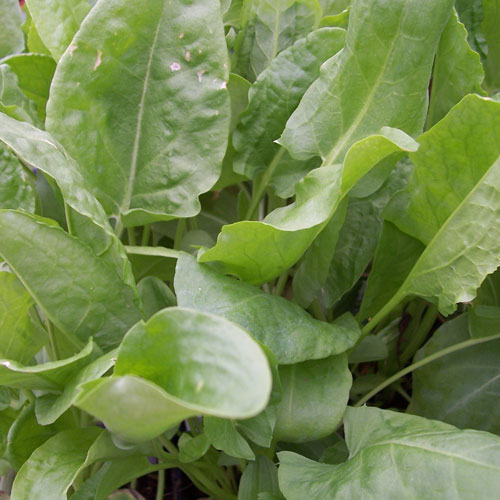
Table of Contents
Health
Benefits of hyaluronic acid for acne

- Methods of treatment
- FREQUENT QUESTIONS
- What is the main indication of hyaluronic acid in acne scars?
- When is the effect of hyaluronic acid noticeable?
- How is hyaluronic acid applied?
- How many hyaluronic acid sessions are needed to treat facial acne scars?
- How is the face after doing the filling session?
- Is it a painful procedure?
- Can fillers be combined with other acne scar treatments?
- Is the effect of hyaluronic acid definitive?
Discover the benefits of hyaluronic acid for acne.
In most acne scars there is a loss of skin volume ( atrophy ), which gives the area where they form a depressed or “engraved” appearance.
This atrophy is the product of a lack of hyaluronic acid and collagen in the dermis, the intermediate part of the skin, responsible for giving the turgidity, volume, and elasticity of healthy skin.
Methods of treatment
There are different methods to treat atrophic scars, which we could classify into two different groups according to their speed of action:
· Immediate effect. They are called fillers, biocompatible substances that can be injected into the skin to give volume to areas that have lost it.
Among them, those of hyaluronic acid, polylactic acid, or calcium hydroxyapatite stand out among others. Its turgid effect is immediate, filling cavities, furrows, and atrophic areas of the skin with very natural results. The duration of these materials is limited, so periodically (every 6 – 18 months ) it is common to practice a new session.
· Delayed effect. It implies that they promote the synthesis of collagen and ground substance of the dermis. It is worth mentioning the fractional lasers (ablative or non-ablative) and the intermediate and deep peels.
The main advantage of these methods is that their effect is permanent once the optimal point of improvement has been reached, which is not immediate but after practicing several sessions of the procedure.
Hyaluronic acid is indicated in the treatment of atrophic, depressed, and ice-pick acne scars. There are different densities of hyaluronic acid, designed to treat different forms of atrophy or loss of volume.
For the treatment of moderate or ice pick acne scars, it is useful to use low and intermediate densities; and to recover a large volume in especially atrophic areas, it is possible to use higher densities to cover the maximum repertoire of defects.
The main advantages of using hyaluronic acid lie in its immediate action, its durability, its biocompatibility, and its minimal allergenic potential. This molecule can fill in atrophic scars, providing optimal volume immediately and in the short term, promoting collagen synthesis in the long run.
In this way, the irregularity on the surface of the skin is substantially reduced after the application of hyaluronic acid, improving the overall appearance of the skin in the treated area.
Another positive aspect of using hyaluronic acid is that it usually only requires a single application session. Likewise, fillers are one of the best tolerated aesthetic procedures since they have a minimal rate of adverse effects and the pain caused is minimal if a precise technique is followed. Slight erythema (redness) that lasts 2-4 hours after the procedure is common and can be reduced with the application of cold compresses.
According to studies published by Halachmi et al, the satisfaction rate and results in patients with atrophic acne scars and ice pick treated with hyaluronic acid are excellent.
The only limiting aspect of hyaluronic acid fillers is their duration. This molecule is naturally degraded in the skin, its effect persisting for 6-18 months depending on the density of hyaluronic acid used and the indication for which it has been applied.
Specifically, for acne scars, the duration of hyaluronic acid is the maximum possible, since it is retained within the fibrosis that partitions the scars. It should be remembered that, in the long term, this molecule favors the synthesis of collagen, so that the perceptible effect is progressively more durable as different sessions are carried out.
FREQUENT QUESTIONS
What is the main indication of hyaluronic acid in acne scars?
Its main effect is to fill in depressed scars and regularize the appearance of the skin surface.
When is the effect of hyaluronic acid noticeable?
The effect of hyaluronic acid is immediate and noticeable at the end of its application. Over a week or so, the hyaluronic acid settles in the applied area and the surface where it has been applied progressively becomes even more regular.
How is hyaluronic acid applied?
The procedure is performed in the Dermatology consultation through microinjections applied under the scars to be treated. An anesthetic cream is usually used before the session and it is very tolerable, with minimal discomfort.
How many hyaluronic acid sessions are needed to treat facial acne scars?
In general, if they are not very deep or extensive, one is enough.
How is the face after doing the filling session?
The corrective effect of hyaluronic acid is immediate. At the end of the session, most atrophic and depressed scars have recovered all or part of their lost volume. Immediately after the session, it is usual to see some redness in the treated areas and slight swelling, which usually lasts between 2-4 hours.
It is possible, although infrequent, that during the procedure a minimal punctual hematoma may appear in an injection area, which will disappear spontaneously over a week or so.
Is it a painful procedure?
Filling with hyaluronic acid after application of anesthetic cream is one of the most well-tolerated and appreciated aesthetic procedures, with an excellent satisfaction rate for the patient.
Can fillers be combined with other acne scar treatments?
Yes. They can be used concomitantly with ablative/non-ablative peels or lasers, or even botulinum toxin if desired. It is recommended, yes, to carry them out in different sessions.
Is the effect of hyaluronic acid definitive?
No. Although with each session there is a certain accumulation of the effect due to the collagen synthesis promoted by hyaluronic acid, it is advisable to perform a filler every 6-18 months depending on the indication and the area to be treated.
Health
Ozempic for weight loss

Table of Contents
- How Ozempic Works
- Ozempic for weight loss compared to other popular drugs
- Ozempic Weight Loss Dosage
- What are the possible side effects of this medication?
- Is Ozempic covered by RAMQ?
- Who takes Ozempic?
- Saxenda for weight loss, what do we think?
- In summary!
- Related
- Ozempic to lose weight? Yes, Ozempic can be used for weight loss. Ozempic is a drug that regulates, maintains, and improves blood sugar in type 2 diabetes and may also promote weight loss.
Ozempic has been proven to significantly lower blood sugar and A1C. The Ozempic website refers to research comparing Ozempic and similar drugs.
-
How Ozempic Works
The active ingredient in Ozempic is semaglutide. It is a glucagon-1-like peptide (GLP-1) receptor agonist. Like this hormone, semaglutide regulates insulin secretion. More specifically, it increases the release of insulin, which has a hypoglycemic effect (lowering blood sugar levels).
This drug therefore allows sugar to travel from the blood to the cells more easily, where it can be used to provide energy. Ideal for type 2 diabetics who have rebellious blood sugar!
Ozempic for weight loss compared to other popular drugs
Ozempic vs Trulicity for weight loss
A study comparing Ozempic and Trulicity clearly showed that people on Ozempic lost more weight than those on Trulicity. The study lasted 40 weeks with 1201 adults currently taking metformin and diagnosed with type 2 diabetes. The study directly compared Ozempic 0.5mg vs Trulicity 0.75mg and Ozempic 1mg vs Trulicity 1 .5mg
Ozempic vs Bydureon for weight loss
A study between Ozempic and Bydureon concluded that people on Ozempic lost more weight than those on Ozempic Bydureon. This 56-week study involved 813 people with type 2 diabetes who have been put on Ozempic 1mg or Bydureon 2mg with metformin and sulfonylurea or just metformin. Weight loss with Ozempic was about 10 pounds while on Bydureon was 4 Pounds.
However, some people have gained weight.
Ozempic vs Januvia for weight loss
A 56-week study comparing the effects of Ozempic and Januvia suggested that people taking Ozempic lost more weight than those taking Januvia. The study involved 1231 people with type 2 diabetes and Ozempic or Januvia were added to diabetic pills.
Weight loss with Ozempic 1mg, Ozempic 0.5mg, and Januvia was 12lbs, 9lbs, and 3lbs respectively.
Ozempic vs Lantus for weight loss
A 56-week study comparing the effect of Ozempic and Lantus suggested that people taking Ozempic lost more weight than those taking Januvia. The study involved 1089 people with type 2 diabetes and Ozempic or Lantus were added to diabetic pills.
Weight loss with Ozempic 1mg and Ozempic 0.5mg was 10lbs and 7lbs respectively. While the people on Lantus gained two pounds in weight.
Ozempic Weight Loss Dosage
Note: For use in addition to diet and exercise in patients with a BMI ≥ 30 kg/m2, or in patients with a BMI ≥27 kg/m2et≥1 weight-related comorbidity (peg, hypertension, dyslipidemia).
SUB-Q: Initiate and adjust dose using the following schedule: In patients who cannot tolerate a dose increase, consider delaying the increase for an additional 4 weeks:
Week 1 to week 4:0.25 mg once a week.
Week 5 to week 8:0.5 mg once a week.
Week 9 to week 12:1 mg once a week.
Week 13 to week 16:1,7 mg Une fois par semaine.
Week 17 and beyond (maintenance dose):2.4 mg once weekly; if not tolerated, may temporarily decrease dose to 1.7 mg once weekly for up to 4 additional weeks, then increase to 2.4 mg once weekly.
Note: According to the manufacturer, treatment should be discontinued in patients who cannot tolerate the 2.4 mg/week dose; however, some experts will continue a patient on the maximum tolerated dose (even if <2.4 mg/week) if the weight loss goal is achieved with that dose (Perreault 2021; manufacturer’s labeling). Consider discontinuation if at least 5% of baseline body weight loss has not been achieved within 3 months (ADA 2021).
Missed Dose: The missed dose should be administered as soon as possible within 5 days; resume the usual schedule thereafter.
If > 5 days have passed, skip the missed dose and resume dosing at the next scheduled weekly dose. If more than 2 consecutive doses are missed, resume dosing as scheduled; alternatively, may restart the dose adjustment program.
What are the possible side effects of this medication?
Many medications can cause side effects. A side effect is an adverse response to a drug when taken in normal doses. It can be mild or severe, temporary or permanent.
The side effects listed below are not experienced by everyone who takes this medication. If you are concerned about side effects, discuss the risks and benefits of this medication with your doctor.
At least 1% of people taking this medication have reported the following side effects. Many of these side effects are manageable and a few may go away on their own over time.
Consult your doctor if you experience these side effects and if they are severe or bothersome. Your pharmacist may be able to advise you on what to do if these side effects appear:
•a decrease in appetite;
•heartburn;
• a change in the taste of solid or liquid foods;
•diarrhea;
•dizziness;
•tiredness;
•flatulence or belching;
•mild abdominal pain or bloating;
•nausea;
•redness, swelling or itching at the injection site; and
•vomitings.
Is Ozempic covered by RAMQ?
Yes! Ozempic is listed on the list of medications in the province of Quebec that are covered by theRégie de l’assurance maladie du Québec(RAMQ). However, only people who have been diagnosed with type 2 diabetes can benefit from it. Ozempic can also be prescribed for other therapeutic indications by a physician who must, however, complete a payment authorization request that will be reviewed by the RAMQ.
If you have private insurance instead, know that many plans reimburse this drug.
Did you know that…
Ozempic comes as a solution in pre-filled, disposable pens? Injections are given under the skin of the thigh, abdomen or upper arm once a week.
Who takes Ozempic?
While it is true that overweight adults without diabetes can also lose significant weight with Ozempic, especially when combined with a lifestyle change, semaglutide is not reserved only for people suffering from type 2 diabetes. Perhaps it will soon be offered as an alternative to promote weight loss in certain individuals who do not suffer from diabetes? This is a case to follow.
At this time, Ozempic is therefore only recommended for people with type 2 diabetes. It is often prescribed when other measures such as exercise, healthy eating and taking other medications are not effective enough. to improve blood sugar levels in these people.
Saxenda for weight loss, what do we think?
Ozempic’s main competitor in weight-loss drugs is liraglutide, known as Saxenda. However, it is less convenient than its competitor since it must be administered daily.
A study 4 comparing the two competitors was carried out on a total of 957 people without diabetes, but suffering from obesity. Some received varying doses of daily injections of Saxenda, others received Ozempic and others a placebo. After one year, 65% of participants receiving the highest dose of Ozempic would have lost at least 10% of their weight compared to 34% of participants who received Saxenda. Impressive, isn’t it?
In summary!
Although Ozempic appears to be the leading weight-loss drug, more studies are needed before recommending it to the general population. Also, remember that this is not a miracle drug! Changes in lifestyle, diet and physical activity must be combined with taking this medication to see real changes! And watch out for the side effects of Ozempic!
Related Searches….
How to get Ozempic for weight lossOzempic for weight loss side effectsOzempic for weight loss FDA approvalOzempic for weight loss reviewsOzempic for weight loss non diabetic dosageMetformin and Ozempic for weight lossOzempic for weight loss non diabeticOzempic for weight loss dosageOzempic for weight loss forumOzempic weight loss before and after pictures
Semaglutide weight loss
6 week plan Ozempic weight loss results
How long does it take to lose weight on Ozempic
Ozempic vs Saxenda weight loss
How much weight can you lose on Ozempic
Ozempic 2 mg dose for weight loss
-

 Food1 year ago
Food1 year ago10 + Benefits of carrot juice and side effects
-

 Benefits4 months ago
Benefits4 months agoThe Benefits of Joining Gym Lumolog – Improve Your Fitness & Health
-

 Health1 year ago
Health1 year ago50 Super Healthy (And Very Often Cheap) Foods
-

 Health1 year ago
Health1 year ago5 Shocking health benefits of kinkeliba and side effects
-

 Food1 year ago
Food1 year ago8 shocking benefits of leek juice and side effects
-

 Health1 year ago
Health1 year agoBenefits of guava leaves Sensually
-

 Weight Loss1 year ago
Weight Loss1 year agoChaz Bono weight loss secret
-

 Health1 year ago
Health1 year ago13 shocking health benefits of Thai eggplant



